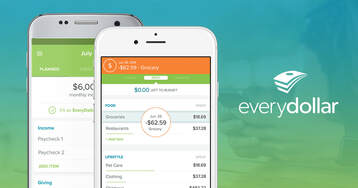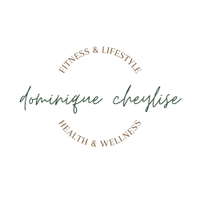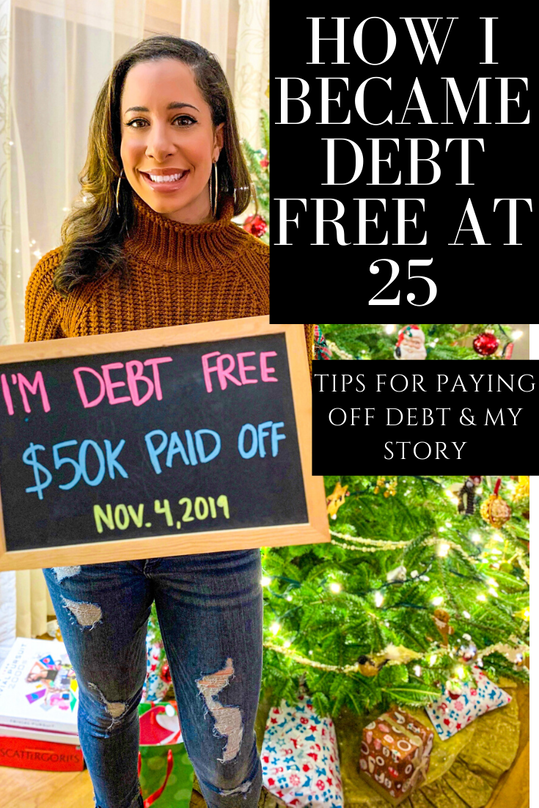
Welcome! I’ve been looking forward to writing this post for a while now and I’m so excited that the day is finally here.
As of November 4, 2019, I am 100% debt free! I’ve paid off ~ $50,000 in debt (student loans, car, credit cards). Being debt-free at 25 years old is truly an amazing feeling, and I hope that everyone gets to experience the freedom that comes with it. If you’re interested in hearing how I became debt-free at 25 and my tips to get out of debt, keep reading! Stop racking up more debt. This may sound obvious, but a lot of people don’t actually put this one into practice. If you have credit card debt, continuing to use your credit card isn’t going to help you pay it down! Put down the credit card and don’t buy things you can’t afford. If you can’t pay for it in cash, you can’t afford it. If you’ve got student loan debt from being an undergraduate, it probably doesn’t make financial sense to take on more student loans to get a graduate degree. If you can’t find another way to pay for it, consider putting off additional education until you can do it without taking out more loans. It may take longer to do it that way, but it’s worth it! A couple of notes related to that:
Debt snowball. I paid off my debt using the debt snowball, a concept Dave Ramsey teaches. While I didn’t follow all of his rules completely (I still contributed to retirement during my debt snowball), I find many of his principles to be excellent guidelines for anyone trying to get out of debt. The debt snowball means that you write down all of your debts, smallest to largest. You start aggressively paying down the smallest debt while paying minimum payments on the rest. Once your smallest debt is paid off, you put that money towards your next smallest debt (and so on). The debt snowball works because every time you pay off a debt, no matter how small, you gain some momentum which pushes you to keep going. A debt-free journey can be mentally and emotionally draining, so this really helps. 
Zero-based budgeting. I found that during my debt-free journey, understanding where all my money was going was most of the battle. I had tried apps like Mint before that link to your accounts and automatically track your expenses. But I didn’t find them to be helpful because I wasn’t actively participating in tracking my spending. I use the EveryDollar app and it’s seriously been a game-changer. You set a budget for each month and log every expense in the app, under its respective category. The app uses zero-based budgeting, where every dollar has an assignment. Your budget isn’t complete until every cent of your income is budgeted to go somewhere (i.e. savings, debt payments, groceries, gas, etc.). It took about a month for me to get the hang of it, but it’s been incredibly helpful. I believe budgeting was the most important part of my journey! Once you actually start looking at where all your money is going, you’ll probably be surprised. I couldn’t believe how much I was spending on eating out! Seeing my spending patterns allowed me to make the lifestyle changes necessary to put a whole lot more money towards my debt each month. Contrary to popular belief, budgeting isn’t about restricting yourself. In fact, I found that budgeting has allowed me to figure out how to make room for the things that are important to me. During my debt-free journey, I was still able to do things like get my nails and eyelashes done because I budgeted for them. “A budget is telling your money where to go instead of wondering where it went.” - John Maxwell Increase your income. Once you’ve got budgeting down, it’s time to start evaluating how you can increase your income and put your extra money towards debt to pay it down faster. Can you seek a promotion opportunity at work or move to a different organization to increase your salary? Can you take on overtime? During my debt-free journey, I was promoted and saw a 12% increase in my salary. This was huge in paying my debt off faster. I didn’t just get promoted by putting my head down and working hard, though. I had to make it clear to my boss that I wanted a promotion and was ready for it (with supporting evidence). I’ll write a post with more details on how to ask for a raise in the near future. Another huge help in paying off my debt was getting a part-time job. This supplementary income allowed me to put a huge chunk of my regular income toward debt. I chose to become a group fitness instructor because fitness is something I’m passionate about and genuinely enjoy. I didn’t want a job that felt like a waste of time. Being a fitness instructor is incredibly rewarding for me! Not only did I have a regular class schedule each week, but I got plenty of opportunities to sub and make even more extra money whenever I wanted. Consider getting a part-time job that uses your skill set or will help you develop new skills. Maybe you’ve always wanted to become a lash tech or start doing freelance makeup. Maybe you have skills in photography or computer repair. Get creative and see what kind of side hustle you can come up with! Having multiple streams of income will benefit you in your debt-free journey and beyond. You also might want to consider getting a part-time job that will help you cut down on a regular expense. Being an instructor gives me a free gym membership that includes unlimited classes, saving me over $120 a month. At most gyms, even front desk staff get a free membership. If the gym is a regular expense for you, a part-time job there may help free up some of your budget! If you’re a big Starbucks drinker, a part-time job there will get you free drinks while you’re on the clock! Learn how to say no. For a lot of people, learning to say no is one of the toughest parts of being financially responsible. Before you commit to anything major (like a trip), it’s important to understand how much it’s going to set you back (realistically). Sometimes, you’re going to have to say no to people you care about - even when you really don’t want to. Aside from an absolute emergency, there’s no good reason to go further into debt. If you can’t adjust your budget to fit it in with cash, it means you can’t afford it. Most Americans are in debt, so chances are the people around you are as well. Many of them may not be as interested in paying off their debt as you are. That’s okay! But if financial freedom is important to you, it’s important to make sure your priorities are straight. Saying no to things you can’t afford is key when it comes to getting out of debt quickly. You may be tempted to buy a new car, go on a vacation you can’t afford, use a credit card to buy a new pair of shoes...but these things aren’t going to help you pay your debt off any faster. To make it easier, just be honest with your loved ones. Let them know what you’re doing and why you’re doing it. Hopefully, this will make them less likely to peer pressure you with poor financial decisions. And if you know someone who’s trying to get out of debt, be a positive influence! Avoid pressuring people to spend money they don’t have. It’s hard enough to make a change without the temptation to do the opposite. Cut expenses. When you’re creating a budget, you’ll probably realize that you should cut your expenses in some areas. The key to getting out of debt quickly is paying off as much as possible every month. The first thing to consider is your living expenses. After college, I moved back home. While I did pay rent, I paid significantly less than I would if I were living by myself. This was a huge help for me and I’m very grateful that I had this opportunity. It was hard at times, but it was important to remember that this living situation was only temporary. If you have the opportunity to live at home to save money, I would strongly consider taking it. There’s no shame in getting help from family, as long as you’re using it to work toward a goal. Mooching isn’t cool, though. So, make sure you have a solid plan for your debt payoff and moving out on your own eventually. Not everyone has the opportunity to live with parents, but there are other ways you can cut down on living expenses. Consider getting a roommate temporarily or subletting a room at your place to cut down on rent costs. If you have cable, consider getting rid of it and using Netflix or Hulu instead. Did you know that Spotify offers a free Hulu membership to premium members? Most people I know spend a decent chunk of change eating out every month. If you don’t know how to cook, now is the time to learn! Not only will meal prepping save you money, but it can also be a step toward a healthier lifestyle. Check out some meal prep tips here. Unnecessary memberships are another huge area to save for plenty of people. If you haven’t been to the gym in the past two weeks, cancel your membership. You aren’t going regularly enough to justify paying a monthly fee for it. There are so many ways to work out at home or without the use of a gym. I'll link reviews of some of my favorite at-home programs at the bottom of this post. If you do have a gym membership, consider showering there after workouts to save on the water bill! Surround yourself with support. Being on a debt-free journey means that you’ll be different from most people. People might think you’re crazy for aggressively paying off debt instead of being content paying a minimum payment for the rest of your life. The journey can be exhausting, and that’s why it’s so important to keep yourself surrounded by others who support you. My friend, Thalia, was the first person I knew on a debt-free journey. She introduced me to the debt-free community on Instagram. There’s an incredible wealth of knowledge on social media! Search the hashtag #debtfreecommunity to be connected with thousands of like-minded individuals on the path to financial freedom. Had it not been for seeing her posts and being encouraged by her journey, I don’t know that I would’ve had the courage to even begin mine. My boyfriend was the first young person I knew personally to become debt-free. He graduated with about the same amount of student loans I did, and he paid them off while living on his own. For part of that time, he lived in NYC. Seeing him do it showed me that it was 100% possible for me. Support from them, along with support from my family, was critical during my journey. Being surrounded by people who think you’re crazy isn’t going to help you stay encouraged to aggressively pay off debt. Having like-minded people in your corner who you can talk to and ask questions makes all the difference in the world. Keep your eyes on the prize. My final tip really carried me through my last few months of debt payoff. Paying most of your salary toward debt can become draining after a while. It’s easy to look at other people and wonder “why am I even doing this?”. Many months I was paying about $2,500 a month toward debt, with my highest month being $4,000. When I would send a large payment, I’d sometimes think about all the other things I could be doing with that money. As discouraging as it sometimes was watching other people spend money freely, it was important to remember why I was doing it. Imagine a life with no car note, no credit card payment, and no student loan payment. That life can and will be yours - it just requires a period of sacrifice. Comparing yourself to others won’t help you pay off your debt any faster. But it can cause you to second guess what you’re doing. Keep yourself focused on the life you’ll have once you’re free from debt. The thousands of dollars I was spending each month on my debt snowball is now mine, and the period of sacrifice was totally worth it. Resources. If you’re interested in becoming debt-free or finding financial freedom, I would highly encourage you to learn about what Dave Ramsey teaches. His website has a ton of helpful resources for people on every step of their journey. I listened to his podcast daily throughout my debt-free journey, and it was a game-changer. Not only is it entertaining, but Dave provides advice to callers at all stages of his “baby steps”. Most episodes include a “debt-free scream”, where a person or family who recently paid off all their debt talks about how they did it and celebrates. These stories were super encouraging, and it’s an awesome feeling to finally be in the debt-free club. Dave also has several books that explain in detail the methods behind his teachings and why they work. Financial Peace University is a great option for those looking to really be financially healthy in all aspects - savings, debt, college funding for kids, retirement, etc. Thanks so much for reading, and I hope this information was helpful to you. If you have any questions about Dave Ramsey’s baby steps, my debt-free journey, or anything else, let me know in the comments! Here are my reviews of some popular at-home fitness programs: Les Mills Bodycombat Review Les Mills Bodyattack Review Les Mills Barre Review
Comments
|
AuthorDominique Cheylise, 27 year-old engineer and group fitness instructor. Archives
August 2021
Categories
All
|
Location |
|
disclaimer
Dominique Cheylise is a personal blog meant for entertainment purposes only. This blog is not meant to serve as a substitute for professional advice from your own doctor, nutritionist, dietician, or trainer. While I'm a certified group fitness instructor, the workouts and food I post are what works for me and may not work for you. Please enjoy these stories and tips from my life, but proceed with caution. Affiliate links and sponsored posts may appear occasionally; your support is appreciated. For more information about how your data is stored, visit my Privacy Policy. Thanks for reading!


 RSS Feed
RSS Feed